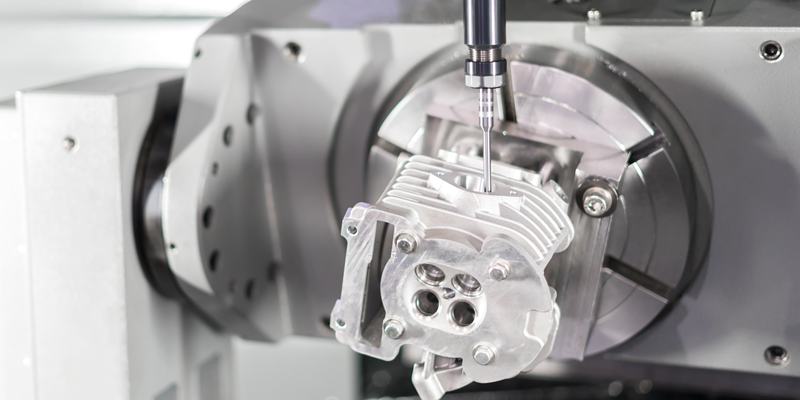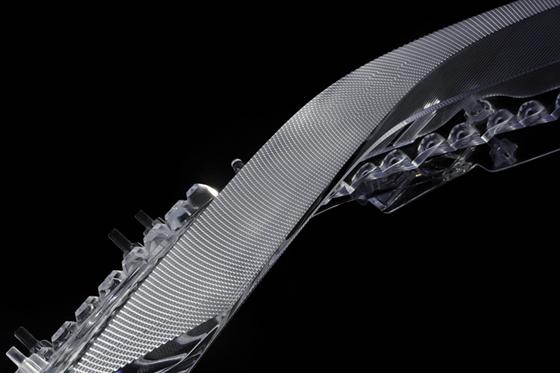- August 9, 2022
Many industries in today’s world now relies on CNC precision machining to develop high-quality custom parts that meet detailed requirements. Precision is very vital for various applications, with parts required to meet tight tolerance requirements.
Precision CNC machining involves using computer programs to produce parts that meet exact specifications. It incorporates various techniques and materials. Therefore, a detailed understanding of the concept is needed to help you get the best from your project.
This guide discusses the precision machining process, the different machine tools used, its advantages, and applications. If you’re looking to get custom precision machined parts, read this article till the end.
What is CNC Precision Machining?
CNC precision machining refers to the process of creating components by cutting out and shaping raw materials. Computer-aided Design (CAD) and Computer-aided Manufacturer (CAM) blueprints help designate the appropriate cutting process. These programs are crucial in the design phase because they often contain detailed 3D outlines that ensure successful part creation.
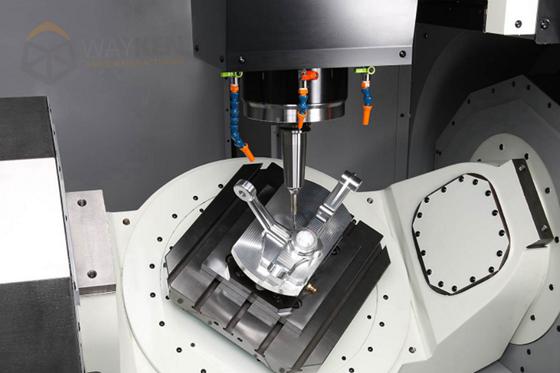
High precision machining is now a crucial aspect of the manufacturing industry. It requires the collaboration of professional designers and expert engineers. The designers are responsible for creating and translating the design into manufacturing instructions. The machinist then sends the final coded instruction to the CNC equipment in machine language for the manufacturing process to start.
What’s more, there are several components needed precision machining, including automotive parts, medical devices, electrical components, and more. Using advanced machine tools in the precision machining process will help create intricate parts with complex geometries. Typical CNC machines have tolerance standards of +/-0.005 inches. However, CNC precision machining can reach tolerances of +/-0.002 inches to +/-0.0002 inches.
Common Types of Precision CNC Machine Tools
The precision machining process incorporates many techniques to deliver quality parts. Each of these techniques utilizes different machining equipment for quality results. Some processes involve a single CNC machine, while others involve multiple machines.
Some of the machines used for an effective CNC precision machining run include:
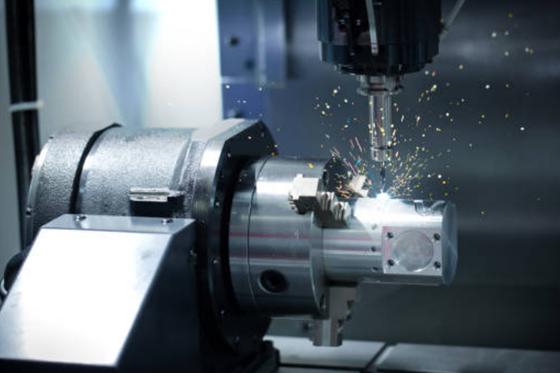
1. CNC Milling Machines
These are characterized based on their ability to reshape stationary raw materials by using a rotating cutting tool. These machines help produce various shapes, mainly face-milled features and peripheral milled features.
The face-milled features include flat surfaces and shallow cavities, while the peripheral milled features are deeper cavities like threads and slots. Precision CNC milling machines help create mainly square- and rectangular-shaped components with various features.
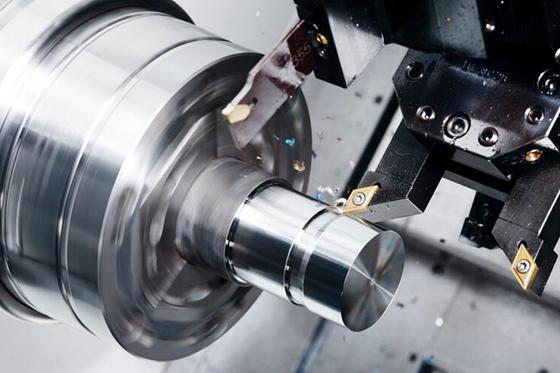
2. CNC Lathes and Turning Machines
Unlike the milling machines, these ones can turn (or rotate) raw materials while the cutting tools stay stationary during the operation. In this case, the cutting tools are in linear motions along the turning bar stock. Thereby, they are able to remove materials around that circumference so as to achieve the desired diameter and feature.
CNC Swiss lathes are types of CNC lathes. These machines rotate workpieces and slide them axially into the machining tool through guide bushings. With CNC Swiss lathes, you can be sure of better support for the workpiece as the equipment shapes the part. This results in components with tighter tolerances.
CNC turning machines create external and internal features on components. These features include bores, reamed and drilled holes, broaches, tapers and threads, tappings, and slots. So, the components you can get on these machines are bolts, screws, poppets, shafts, etc.
3. CNC Drilling Machines
Drilling is a precision machining process that uses rotating drill bits to produce cylindrical holes in materials. These drill bits are multi-point equipment that keeps chips away from workpieces, ensuring advanced hole machining.
Common examples of drill bits for precision CNC machining include:
- Spotting drills. They help create shallow or pilot holes.
- Drill presses. These are important for custom drilling tasks.
- Screw machine drills. They produce holes without an initial pilot hole.
- Chucking reamers. They help enlarge previously created holes.
- Peck drills. They reduce the number of chips created from workpieces.
4. Electrical Discharge Machines (EDM)
Electrical discharge machining (EDM) involves using controlled electrical sparks to shape materials into desired shapes. Many machinists also refer to it as spark eroding, spark machining, die sinking, or wire burning. During this process, the technician places the component under an electrode wire.
The programmed machine then emits electrical discharges from this wire, producing intense heat. The heat melts the material and is flushed with an electrolytic fluid to give the desired feature or shape.
What’s more, EDM creates precise slots, micro holes, angled or tapered features, and several other complex features on workpieces. It is the ideal process for hard metals that are normally difficult to machine.
5. CNC Plasma Cutting Machines
These tools help cut materials using a high-powered, computer-controlled plasma torch. These plasma torches can reach temperatures over 50,000 degrees Fahrenheit. As a result, they can easily melt workpieces and create cuts in the material.
Materials used with plasma cutting machines must be electrically conductive. Examples of such materials include steel, aluminum, stainless steel, copper, and brass.
6. CNC Precision Grinding Machines
You will need precision grinders if you require CNC precision machining that provides smooth surface roughness requirements. These grinders are crucial for creating parts with exceptional accuracy. Generally, CNC lathes and CNC mills often create rough surfaces first. Then, the grinders are needed for the final surface finishing.
Materials Used for CNC Precision Machining
The precision machining process can work on an extensive array of materials. These CNC machining materials are generally classified under:
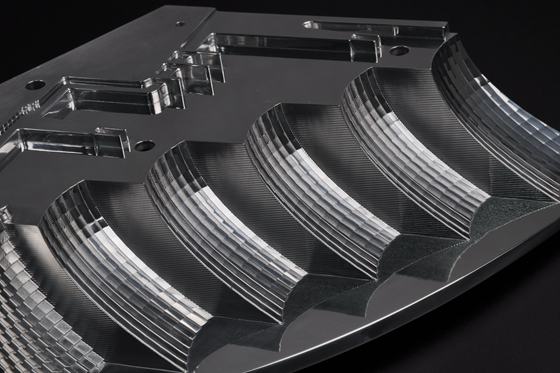
Metals
Precision CNC machining works well for several metals, regardless of their hardness or strength. This process uses advanced technologies that ensure the effective machining of these metals.
The common metals for CNC precision machining are:
- Aluminum
- Steel
- Stainless steel
- Copper
- Brass
- Bronze
- Titanium
Plastics
CNC precision machining can work with basic or engineered plastic materials. The process gives quality products at competitive pricing, regardless of your plastic choice.
Some of the plastic CNC machining raw materials are:
- Acrylonitrile butadiene styrene (ABS)
- Polycarbonate (PC)
- Poly(methyl methacrylate) (PMMA)
- Polyoxymethylene (POM)
- Polyamide (PA)
We highlighted the most common precision CNC machining materials. However, WayKen offers a comprehensive and the most extensive list of materials for custom precision machining needs.
Advantages of High Precision Machining
Precision and repeatability are crucial requirements when it comes to cost-effective and high-quality machining. In general, CNC precision machining excels in several ways to help meet performance and quality demands. Some of the advantages of this process include:
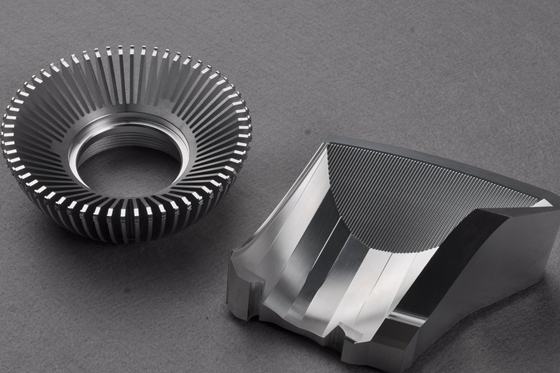
1. High-class Machining Technology
The precision CNC machining equipment is a state-of-the-art technology that stays true to industry 4.0 standards. It eliminates excessive labor requirements and operates heavy machinery.
Regardless of the CNC machine tool used, computer programs now allow the automation of most operations. They are “live operators” that manipulate cutting tools and shape different raw materials to desired finished products.
2. Improved Performance and Reliability
While some applications can accept traditional machining results, others have tight tolerance requirements. These requirements demand high precision machining.
Moreover, most industries often require many identical parts. This is only possible with the repeatability of precision CNC machining. Quality processes are always in place, with CNC machines applying similar cuts and maintaining equal quality on all parts.
3. Extensive Range of Applications
Precision machining processes are compatible with several materials, including high-grade metals and plastics. This flexibility helps businesses of different sizes to compete and offer custom designs and parts.
In addition, the repeated achievement of tight engineering tolerances can help establish customer confidence. Several industries can benefit from precision CNC machining, including automotive, metalworking, aerospace, marine, agriculture, consumer goods, etc.
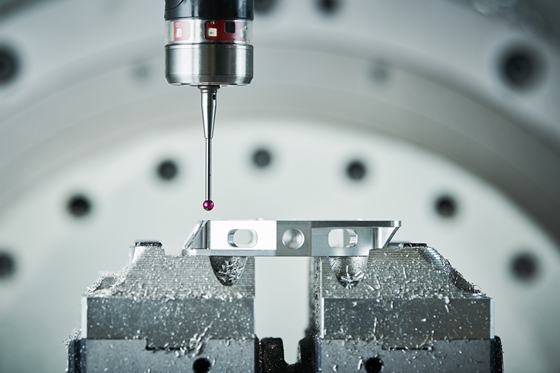
4. Reliable Part Quality
CNC precision machining quality is unmatched. It eliminates any variation involved in conventional machining due to the use of computer numerical control.
The process can run for several hours, requiring only minimal maintenance and advanced software to meet design needs. As a result, even the most complex parts can be created with advanced processes to ensure the highest quality that exceeds customer expectations.
5. Reduced Cycle Times and Lower Labor Costs
CNC precision machining can meet higher production demands due to its enhanced machining automation and programming abilities without interruptions to machine use. High-precision machines are designed to be highly accurate and provide repeatable results.
However, conventional machining requires manual monitoring and adjustments of the tooling and running speeds. On the other hand, a CNC machine can run programs created offline. One machine operator can change over machining centers and run various productions. The operator maintains load parts and tooling and performs offline deburring and quality control.
So, the structure requires very few operators for the monitoring process, thereby reducing labor costs. Likewise, it ensures faster creation of components, regardless of the quantity.
Applications of CNC Precision Machining
Precision CNC machining is a well-known technique for various industries due to faster production, cost-effectiveness, multiple applications, and high product quality. Its advantages are useful in these industries.
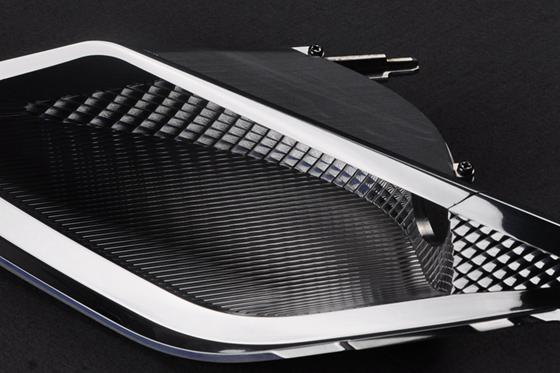
1. Automotive Industry
The automotive industry is a revolutionized space in today’s world. New innovative automobile parts come up every day, with up-to-date vehicle iterations. Automobile companies prefer CNC precision machining to develop quality prototypes before moving into full-scale production. This allows for functional market testing and changes to the design if necessary.
2. Medical Industry
Equipment in the healthcare sector requires the highest level of precision due to its tolerance specifications. Tools like orthotic devices, safe enclosures, implants, MRI matches, and many more often have tight tolerances. Only precision CNC machining can help achieve this.
3. Aerospace Industry
As with automobiles, aircraft and other aerospace vehicles also require a high level of accuracy. Any errors on these parts can endanger people’s lives. Therefore, high precision machining helps create parts for this industry. These components include landing gear ports, bushings, manifolds, airfoils, etc.
4. Electronics Industry
The consumer electronics industry is now experiencing serious downsizing, needing smaller and more powerful components. These parts are designed to be compact and lightweight. CNC precision machining can handle these requirements while maintaining very tight tolerances, even with high-volume productions. CNC machines have the capability to produce components such as semiconductors, heat sinks, circuit boards, and other consumer electronics components.
5. Military and Defense Industry
The defense systems in various nations now have new designs for defense systems, and precision CNC machining is the most relevant process to bring these designs to life. Several components can be made with various materials and techniques available, including ammunition, communication components, plan parts, etc.
Conclusion
CNC precision machining is an efficient technique to manufacture custom precision machined parts. Aside from producing excellent components, it also saves costs and helps you get your products to the market faster. As a result, a precision CNC machine shop can ensure better part performance to improve your business’s bottom line.
It is important to work with a reliable CNC machine shop with an in-house engineering department if you want to get the best result. WayKen boasts a team of expert technicians with extensive knowledge in precision machining techniques. Equipped with 3, 4, 5 axis CNC machines, we are ready to produce high-quality and intricately designed metal and plastic parts to help you stay competitive in your industry. Request a quote today for best-in-class precision machining services.
FAQ
How precise can a CNC machine be?
CNC machines can deliver a very high degree of accuracy, helping you meet extremely tight tolerance requirements. Regardless of your parts’ complexity, CNC precision machining is the technique of choice.
What are the tolerance limits for CNC precision machining?
The standard tolerance limit for CNC machining is about +/-0.005 inches (0.127 mm). On the other hand, precision machining can reach up to +/-0.0002 inches (0.00508 mm).
What is the most precise CNC machine?
5-axis CNC machines are the most precise and fastest precision CNC milling machines available. 5-axis CNC machining uses the x, y,& z linear axes, and they can rotate in two different axes (A and B). Therefore, the tool can shape workpieces from any direction.

